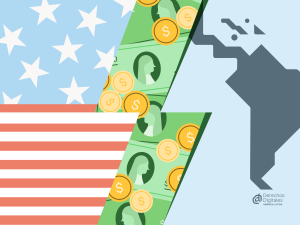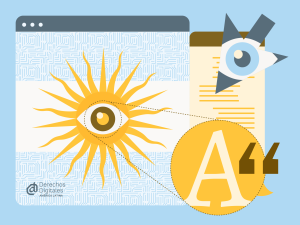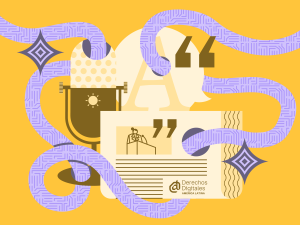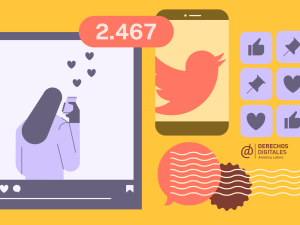Choose language:
Twitter: The beginning of the end?
After several months of speculation and drama, Elon Musk took over Twitter. The last few weeks have been full of controversy at the company and many are predicting its end. However, what does this really mean?
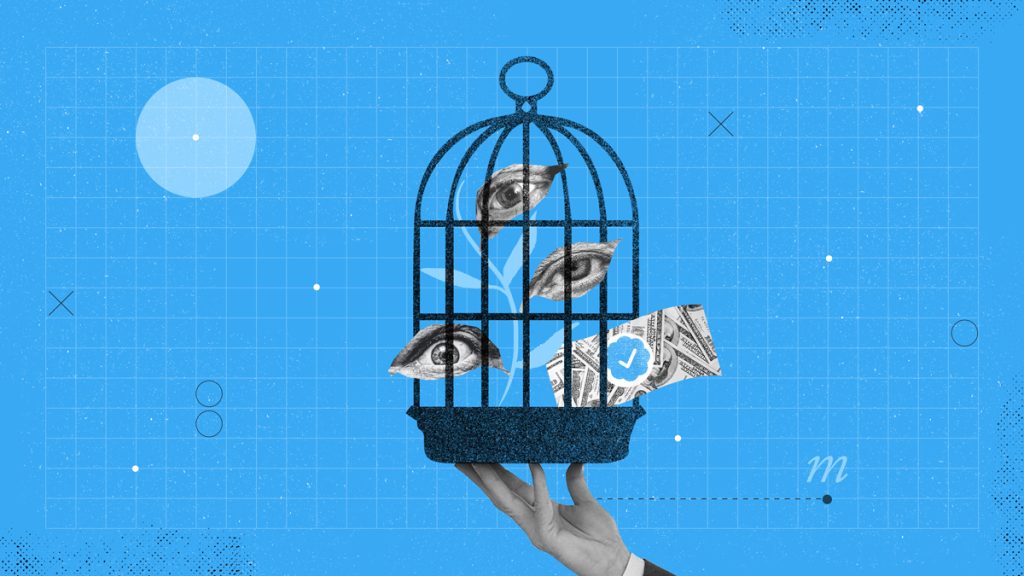
It finally happened. After several months of speculation, and at the risk of having to go to court, Elon Musk became the owner of Twitter. And things are going more or less as expected: massive layoffs, a significant drop in advertising revenues and a sense of generalized chaos within the company.
Certainly, there is something gratifying in seeing a billionaire blowhard fail. And yet, Twitter’s eventual downfall can and should also be understood as a loss for its many millions of users around the world. Expectations grow with each new piece of gossip and with each new mistake. At this very moment, Twitter’s offices are closed, after a large majority of employees has chosen to reject an ultimatum from Musk. More than ever, the future is uncertain.
Is this simply the work of a man particularly ill-suited to the job he bought or is it symptomatic of something bigger? How does this fiasco affect those of us who use the platform? What can we learn from all this and what is next?
Freedom of expression at risk
The purchase of Twitter has been tied to a series of critical statements made by Elon Musk about Twitter’s role in relation to freedom of expression, often echoing unfounded predicaments of the U.S. right wing political establishment.
At the end of January of this year, when he had just started buying shares in Twitter, Musk criticized the platform for not “adhering to the principles of freedom of expression”. After the acquisition, at the end of October, Musk tried to clarify his position, pointing out that by freedom of expression he means “what the law allows” (more precisely, US law).
Musk describes himself as an absolutist when it comes to freedom of expression, but his track record points to something different: “Comedy is now legal”, stated one of the first posts he made after becoming Twitter’s owner, alluding to the idea that political correctness destroys not only comedy, but also civilization. Yet, those who dared to mock the new owner found their accounts suspended. Both his actions and his statements demonstrate how little understanding Elon Musk has of the complex challenges of defending freedom of expression on the internet, on a platform of global scale.
Among the first layoffs was the human rights team, the team in charge of accessibility for people with disabilities and the team dedicated to ethics and algorithmic transparency. Widely commented was the dismissal of Vijaya Gadde, the company’s chief legal officer and responsible for various decisions regarding freedom of expression, content moderation and platform security: she was the one who decided to veto Donald Trump and ban the sale of election advertising on Twitter. In April, Musk had shared a meme mocking the executive, which led to him receiving a large number of hate messages.
The new administration is dismantling the structure created by Twitter to combat the real threats to freedom of expression: hate speech, violence and political persecution. Over the past weekend, they fired the team in charge of moderating this type of content.
The main sufferers of an abrupt change of direction in freedom of expression are political dissidents, particularly in authoritarian countries and conflict zones, in addition to women, LGBTQI+ people and members of historically marginalized groups, who are the main victims of harassment and violence via Twitter.
Twitter is currently in the midst of a very high profile litigation in India, facing a government that is very prone to make use of a law that empowers them to demand the blocking of platforms and accounts that have published information they consider defamatory. The impact may be vast, but whether they will continue with this process is a mystery. As we have mentioned before, respect for human rights on the platform cannot depend on its ownership, but that is the minimum floor. A true commitment to freedom of expression requires taking extra steps, including facing lawsuits that are long, burdensome and costly. However, the complex economic situation in which Twitter finds itself makes it difficult for this to materialize.
How much is Twitter worth?
What are we talking about when we talk about the collapse of Twitter? It is not that, from one day to the next, the company simply ceases to exist, its servers disconnected from the Internet, inaccessible. After all, remnants of MySpace are still online. Rather, it is the point at which, due to the dismantling of the various processes and systems that establish basic minimums of civility, the platform becomes sufficiently unattractive and users cease to use it, to the point of irrelevance.
This is a plausible and frustrating scenario, particularly for those who have invested time and effort building networks and a significant number of followers on Twitter. Switching platforms means not only leaving behind hard and constant work, but also losing an audience. Having to do so because of the incompetence of the richest man in the world is even worse.
Musk paid US$44 billion for Twitter and there is consensus that the amount is excessive, an issue that he himself has admitted (let us not forget that he tried to back out of the deal and could not). It is estimated that the real value of the platform is around US$25 billion. In any case, it would be worth absolutely nothing if nobody used it. The real value lies in the sum of the effort invested by each person who publishes, shares, comments, reads, follows and adds to their favorites.
Following Antonio Negri and Michael Hardt, we could call this logic as bio economic, based on the development of the Foucauldian concept of biopower: “Life is no longer produced in cycles of reproduction that are subordinated to the working day; on the contrary, life is what infuses and dominates all production. In fact, the value of labor and production is determined deep in the viscera of life. Industry produces no surplus other than that generated by social activity.”
It is not the technology, it is the people. The platform and the technology constitute the means of production for a particular form of communication known as Twitter. The economy of social networks is built on the exploitation of the totality of social relations between users, understood as work and made profitable in the stock market and in the sale of advertising. The product is not you, but the communicative links you establish on the platform.
Therefore, having to give up Twitter is losing twice: it is the stripping of the value of your work on the platform as a user, as well as the social capital you have been able to accumulate. For the same reason, speculation about a potential subscription model feels like a scam, and most likely will not work.
However, there are not many options for Musk, who is obliged to find a way for the platform to generate money. However, the transformations imposed since the beginning of his tenure point in the opposite direction.
However, is it just Twitter?
While the attention was focused on Elon Musk, Mark Zuckerberg took the opportunity to lay off 12,000 employees, approximately 13% of the company’s staff and almost triple the number of layoffs at Twitter. META’s stock has fallen 70% this year, losing a market capitalization of close to US$800 billion.
The reasons are manifold: too many people hired to work on failed projects in an attempt to retain a position that the once all-powerful company has begun to lose to competitors with whom it does not know how to compete. Zuckerberg’s obsession with building the Metaverse does not help either. Reality Labs, the company in charge of developing the Metaverse, lost more than US$21 billion between 2019 and 2021, with another US$9.4 billion in losses over the last three quarters.
Financially, things are even worse at Twitter. In the last quarterly report prior to the acquisition, the company reported a US$344 million loss. To finance the acquisition, Musk had to raise about US$13 billion in debt, which accrues about US$1 billion in interest annually. Musk desperately needs to make the company profitable, but Twitter has only made a profit for two periods in its history.
Both Zuckerberg’s obsession with virtual reality and Musk’s disastrous attempt to charge for verification on Twitter reflect the same thing: both companies realize the need to find new sources of funding, other than advertising. If we add to that picture the multiple difficulties associated with content moderation on platforms with global pretensions –which is the fundamental core of a platform that needs to attract users and advertising– and the emergence of new logics regarding the way we relate to online content, perhaps what we are witnessing is the bursting of the bubble, the end of an era, the near abandonment of a form of online production that is not sustainable.
Several voices are beginning to declare the end of social networks (some with more conservative arguments than others). Maybe, if there is one thing we can be sure of, it is that everything ends, everything dies. Now what? During the early days of Musk’s reign on Twitter many people turned to Mastodon, a platform characterized as the anti-Twitter. Even though Mastodon has its own problems and it is hard to know if this influx of new users will be sustained over time, there is something about the postulates on which it is built that can give clues about the broader possibilities of the online experience.
Perhaps the future can be on a human scale: smaller, more localized, more communal, more silent.
We shall see.
































